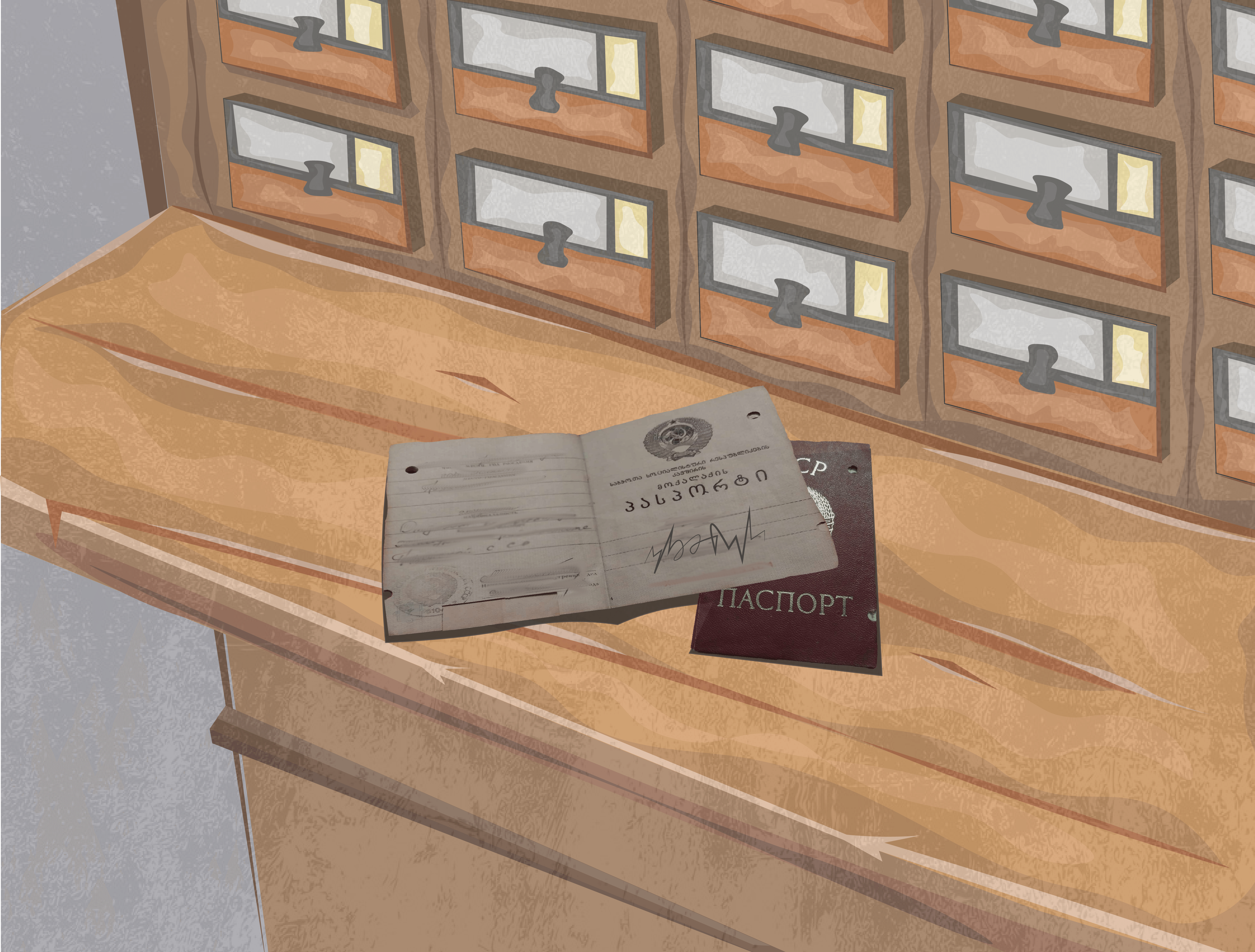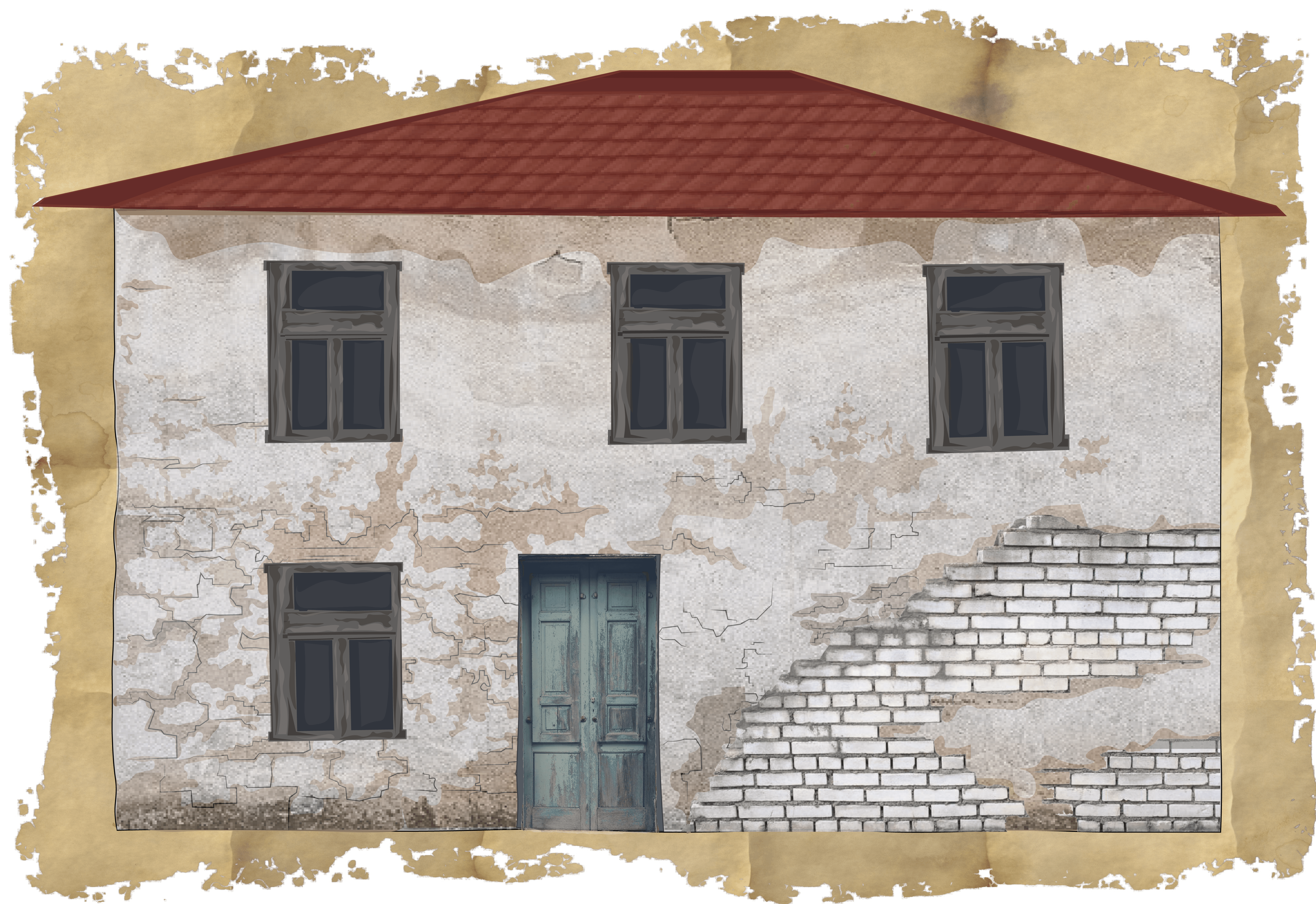
The process of the Soviet Union’s collapse was accompanied by conflicts, armed confrontations, and various difficulties throughout the entire post-Soviet space. Georgia and its ethnic minorities experienced this phase as well, and some of the tensions escalated to armed conflicts.
Ossetians are one of the ethnic groups residing in Georgia. Before the collapse of the Soviet Union, Ossetians inhabited various regions of Georgia. However, following post-Soviet tensions and the armed conflicts of the 1990s, their numbers drastically decreased. In the 1990s, Ossetians and other diverse groups experienced discrimination, became victims of violence, and were compelled to leave their homes, resulting in emigration from Georgia. The vast majority of those who remained chose to change and Georgianize their Ossetian surnames.
Ossetians still live in Tbilisi and other areas in Georgia today. Yet the gradual emigration still continues for different reasons; villages across Georgia are depopulating, and the stories of the past remain untold.
What follows is the story of two Ossetian women who currently live in Tbilisi and remember the period when the Georgian-Ossetian conflict directly impacted their lives. 1
“You know what was the saddest and hardest thing? Being devalued for something that you cannot change. If someone says you are uneducated, you read…graduate from university and you will no longer be uneducated. But when they say you are Ossetian and therefore you are nothing, you can’t change this with anything, what can you say to that?”
Nino, an Ossetian woman from Tbilisi, couldn’t talk about the end of the 80s and the beginning of the 90s without tears. She said back then she didn’t cry much; at that time she couldn’t analyze the situation with the same level of detail that she does now. Nino reflected on her experience facing ethnic discrimination and prejudice in 1990s Tbilisi.
“I graduated from the Russian school in Tbilisi. I had Georgian, Ossetian, Armenian, Assyrian, and Russian classmates but I didn’t even think that they were of another nationality and somehow different from me. Then when people started talking about nationalities, I thought about who was who.”
As Nino remembers, for her the tension became more noticeable after April 9, 1989, when she noticed unpleasant incidents and discrimination against ethnic minorities intensifying.
“I didn’t like the situation and I started paying more attention to things. Our neighbor brought his [new] daughter-in-law [to his home for a celebration]. Everyone was invited to the feast except my husband, because he had an Ossetian wife. So we were not invited. I never felt such attitudes before,” Nino said.
Nino started feeling changes in the attitudes of those around her husband more and more often. She said while she could somehow bear those attitudes from strangers or acquaintances, it became more difficult once she started feeling those changes within her husband’s family too.
Her husband was Georgian, and at first she would “use” that to defend herself from the attacks. But at some point, she said, when the situation became very intense and attacks on Ossetians began, no one cared whether she was the wife of a Georgian man anymore.
“My mother-in-law told my children: when someone asks you what your mother’s last name is, tell them that you don’t know,” Nino recalled.
At the beginning of the 90s, the situation became so tense that Ossetian families were attacked, robbed, and even killed in their homes. Nino said that every morning began with the expectation of bad news. Because of this, her parents thought that it might be better to leave Georgia. When they started talking about leaving, there was the question of who should own their house.
“My mother-in-law told me that it would be better if my parents didn’t give their house to anyone and my brother-in-law would buy it. This meant that they would pay a very small sum of money to my parents for the house. When I imagined that the house where I grew up would be transferred to the property of my brother-in-law, who was harassing me, it was not easy to bear… No one other than our family had lived in that house. The house was built by my great-grandfather. But at that point it seemed natural that the Ossetians should leave Georgia, because ‘it was not our homeland’ and we had to go to our homeland. But we had no relatives anywhere else, all our family lived in Tbilisi, our ancestors also lived in Tbilisi.”
Ossetian families started leaving their homes. Nino’s relatives left at night without telling anyone in advance. It turned out that they had been threatened and forced to leave. Many Ossetian families left Tbilisi after experiencing this kind of intimidation.
“Many went to Ossetia, some lived in rented flats, some lived in sheds, some lived on the street. If anyone had a relative anywhere, they were in the best situation…They did not welcome those who went to Vladikavkaz, because they felt like strangers there too. For Vladikavkaz Ossetians, Tbilisi Ossetians were different people. Here in Tbilisi there were ‘others,’ there in Vladikavkaz there were also ‘others.’ They didn’t like Ossetians from Tbilisi; they had a different language, they couldn’t understand each other.” Nino said.
“Too many died soon after [leaving Georgia]. Stress was the cause of death for those people.” Nino also recalled that some people returned to Tbilisi years later. “Not everyone got their homes back here, some had sold, some had their homes occupied, but some found their homes locked and intact and were able to resettle again to their homes again.”
Ossetian families that could not go anywhere and stayed in Tbilisi were looking for a way to make their lives safer. One such way was to change their Ossetian surname to a Georgian name. To change the surname, it was necessary to retrieve the history of the surname from the archive and rearrange it accordingly.
Shorena, an Ossetian woman from Tbilisi, remembers, “When I was getting my passport, I was advised to take my mother’s nationality [Armenian] and to not write Ossetian in my passport. Then we started to take care of changing the surname, because if we left, we would not be able to go anywhere. We had no one in Ossetia, neither relatives, nor acquaintances, nor did we know Ossetian. We loved Georgia and did not want to go anywhere. We fought in our own way to stay in Georgia. When the situation got tense, my sister lost her job because she was Ossetian, so we decided to change our last name. My sister went to the archive to see the history of the surname, and paid 50 coupons to change our surname to Georgian.”
Shorena married a Georgian man at the age of 16. Remembering her story, Shorena says that when her future husband expressed that he liked her, his mother came to their house and proposed to Shorena’s mother to have their children married. Shorena’s mother agreed to the proposal. At this time the situation was already tense, there was aggression towards Ossetians, and cases of Ossetian girls kidnapped, abused, and attacked in their homes. Shorena’s mother thought that her daughter would be safer if she had a Georgian husband.
When she was pregnant, there were dangerous rumors circulating, because of these, Ossetian women were afraid to go to the maternity hospital alone, without someone they could trust. “A female nurse I knew attended my delivery to make sure nothing was wrong with my baby. Nobody should harm the child.” Shorena recalled.
Shorena said, “Today I do not hide anywhere that I am an Ossetian, because I am.” Although I don’t speak Ossetian, I know that I am an Ossetian. For Ossetians, I am not an Ossetian because I do not speak Ossetian, for Georgians, I am not Georgian because I had an Ossetian surname. Lately I have been thinking about returning my Ossetian surname. To tell you the truth, I took my husband’s last name because I couldn’t get used to my changed last name, they forced me to change it. Because I didn’t want to have that changed last name. Even today, I could not come to terms with the fact that I was forced to change my last name. It still bothers me. I did it only to live in my country.”
- These are subjective assessments – subjective experiences and memory – which do not always reflect factual information. However, these are perceptions and emotional experiences that existed at the time and are still etched in the memory of those who lived through it. This article offers the reader an illustrated perspective through the eyes of two Ossetian women living in Georgia: how they remember this period, their fears at the time, and how it is preserved in their memory. These are the perceptions and emotions of the past seen today.


